|
One of the reasons Alzheimer’s disease is such a devastating diagnosis is that there is no cure. More than a century after the condition was first recognized, researchers have not found a way to stop its progression.
Today in The Conversation Canada, neurologist and researcher Donald Weaver from the University of Toronto explains the unique hurdles to finding a cure, or even an effective treatment, for Alzheimer’s disease. Multiple factors — including funding, misconceptions and the incredible complexity of the disease itself — contribute to this challenge.
Also today:
All the best.
|
Patricia Nicholson
Health + Medicine Editor
|

|
|
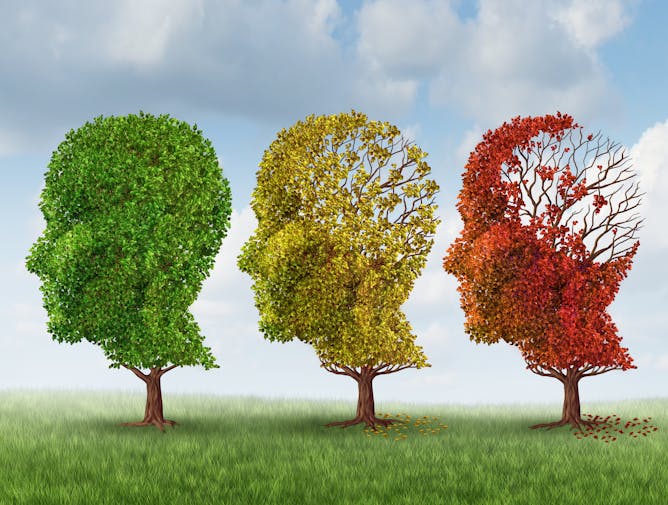
Currently, the only approved drugs for Alzheimer’s merely alleviate some of the symptoms — partially and temporarily — but do not stop the disease from progressing.
(Shutterstock)
Donald Weaver, University of Toronto
It was first officially described 115 years ago, but we still do not have a cure for Alzheimer's disease. The human brain is extremely complex, and Alzheimer’s is its most complex disease.
|

Ferries on the Padma River in Bangladesh. Development reports, academic research and news indicate that water- and climate-driven migration crises are escalating in Bangladesh.
(Nidhi Nagabhatla)
Cameron Fioret, University of Guelph; Nidhi Nagabhatla, McMaster University
Water and climate issues are expected to cause more than one billion people to migrate by 2050.
|

Facebook’s Oversight Board recently upheld a decision to remove posts using ethnic slurs against Azerbaijanis. Here Azerbaijani troops march during a military parade in Baku in December 2020 in celebration of a peace deal with Armenia.
(AP Photo)
Wendy H. Wong, University of Toronto; Nicholas Weller, University of California, Riverside
The decisions made by Facebook through its content moderators and Oversight Board have significant implications for the exercise of worldwide freedom of expression and speech.
|
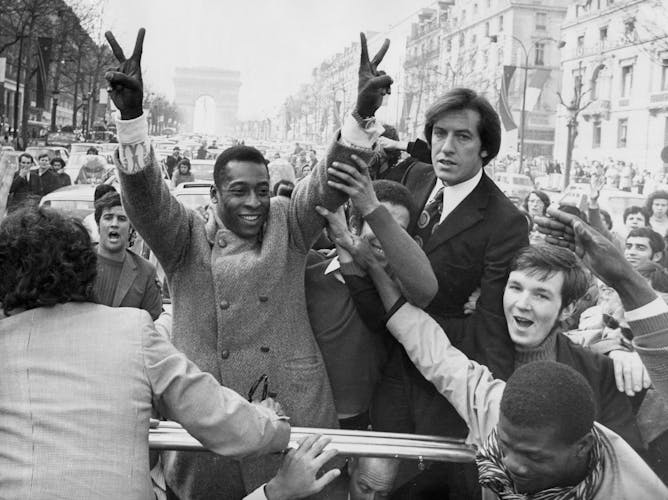
A new documentary explores the life of Brazilian legendary soccer player, Pelé against the backdrop of the country’s politics. But the doc fails to ask the right questions about race and class. Here Pelé is shown in 1971, in Paris.
(AP Photo/Levy)
Luisa Farah Schwartzman, University of Toronto
Although Brazil is formally a democracy, the practice of torture is ongoing, especially for Black Brazilians. Soccer creates an illusion of fairness is which is increasingly hard to sustain.
|
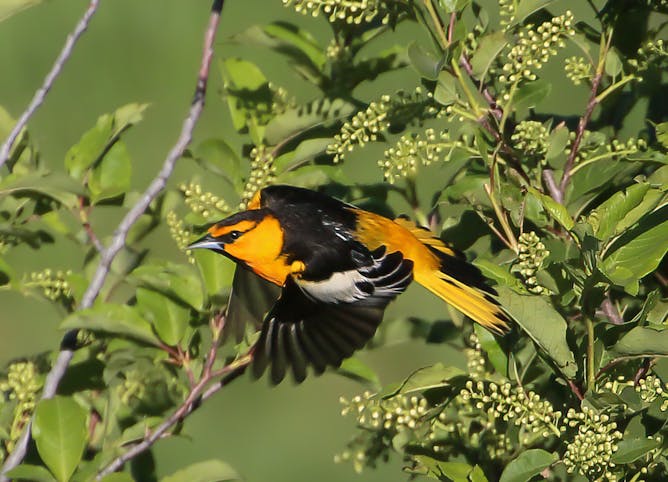
A male Bullock’s oriole alights from a branch in Kamloops, B.C. Within a month, he will head south to moult.
(Glenn Dreger)
Matthew Reudink, Thompson Rivers University
Moulting is one of the more energy intensive processes that influence bird migrations. With technological advances, it is possible to track and learn from the movements of Bullock's orioles.
|
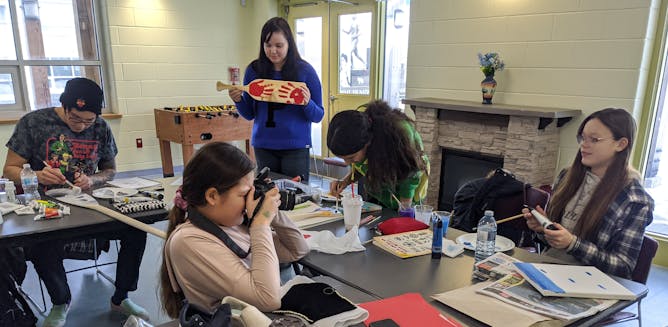
Youth with with Music for the Spirit & Indigenous Visual Arts work on projects about relationships with water at Six Nations of the Grand River.
(Richelle Miller)
Elaine Ho, University of Waterloo; Richelle Miller
Collaborative research sought to document Six Nations youth perspectives shared through art and story to inform principles for water management in the lower Grand River.
|
La Conversation Canada
|

Le Canada n’arrive plus depuis 2015 à joindre le top 20 des pays les plus innovateurs.
Shutterstock
Imed Chkir, L’Université d’Ottawa/University of Ottawa
Le Canada a une culture propice à l’innovation. Il devrait mettre à profit cet atout en investissant plus largement dans la recherche et développement (R&D).
|
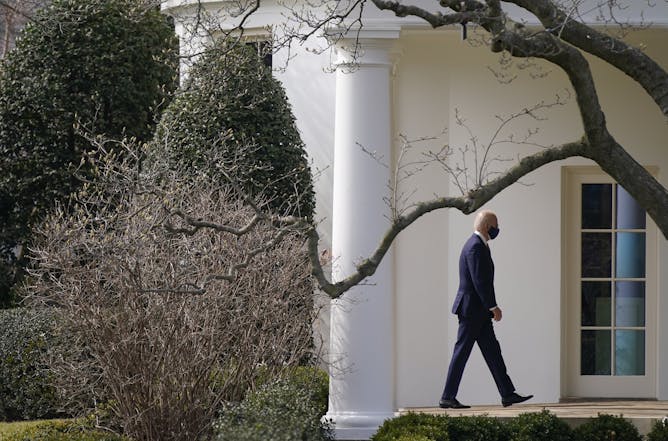
Le président Biden, à la Maison-Blanche, se dirigeant vers le bureau ovale le 9 mars 2021.
(AP Photo/Patrick Semansky)
Jason Opal, McGill University
Depuis son investiture en janvier, Joe Biden a démontré qu’il comprenait le fonctionnement de la présidence américaine moderne, tant sur le plan politique que sur celui de la psyché de la nation.
|
Culture + Society
|
-
Helen Rowe, RMIT University
Many people prefer the status quo as they struggle to imagine the alternatives. The pandemic has been the catalyst for urban experiments that have opened our eyes to new possibilities.
|
|
Environment + Energy
|
-
Mike Muller, University of the Witwatersrand
Nile communities carefully monitored and recorded the river’s flow. Centuries later these records are still being used by water resource managers around the world to analyse unpredictable river flows.
|
|
Podcasts
|
-
Gemma Ware, The Conversation; Vinita Srivastava, The Conversation; Daniel Merino, The Conversation
Plus we hear about the hardships faced by migrant workers in Canada. Listen to episode 7 of The Conversation Weekly podcast.
|
|
Arts
|
-
Les Johnson, Birmingham City University
The last original Wailer may have died, but the musician's lasting influence on music is clear
|
|
| |
| |
| |
| |

|
| |
| |
| |
| |
| |
| |
| |
| |
|
|